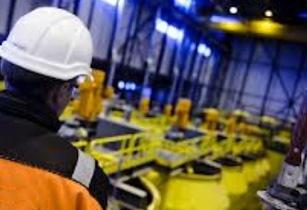Outotec demonstrates how the use of technologies to support minerals and metals firms is now supporting water access and utilisation, and associated environmental concerns
Outotec creates technologies to support sustainable initiatives, working with suppliers and other firms to ensure longevity in minerals market, and for minerals industries. It seeks to decouple the environmental impact of growth from the growth of welfare to a nation, through eco-efficient, sustainable technologies.
Metals and minerals processing, energy and water are the core sectors addressed by Outotec. It works in more than eight countries world-wide; making approximately US$2bn in sales in 2012/13, with employees hailing from more than 60 countries.
Addressing opportunities
Outotec addresses six global megatrends, which it headlines thus: urbanisation and growing middle class; resource efficiency imperative; decoupling wealth and ecological footprint, drive for social sustainability; digitalisation of the world; and more volatile economy. These represent major opportunities as well as challenges, and each applies to Outotec's business in markedly different ways.
Minna Aila, VP for marketing, communications and corporate responsibility at Outotec, disclosed recently the company's strategic thinking with respect to corporate performance and sustainability. She speaks of an internal culture, cost-competitiveness and an expansive, comprehensive yet comprehensible offering. Aila speaks of technology leadership, particularly tough huge investments in research and development, geared towards life-cycle value on site and for a site, throughout the processing of a metal.
The value for Outotec's customer must comprise: minerals processing, refining, industrial water treatment, and energy. Its solutions to customer range from specific engineering support to whole site operation management. It addresses a wide variety of processing techniques. Increasingly, it is dealing not just with minerals extraction enterprises, but also with agricultural waste operations. Internally, it seeks to expand to new sectors and to enhance its commitment to traditional sectors through a culture of open innovation and also a commitment to lifelong professional learning among its staff.
It registered more patents (76) than any other Finnish company in 2013 and works closely with universities all over the world including, for example, academic institutions and technologists in South Africa and China, two of the world's most dynamic economies.
Significantly, Aila stressed that Outotec takes a holistic view of industrial and economic opportunities - to ensure sustainability for society. The stress not merely on business connections, but also on societal benefits.
"We are not in B2B, business-to-business, development; we are in H2H, human-to-human, engagement," she said. "You need to trust not only the company that you are dealing, but also the people you are dealing with."
Direct development of minerals businesses
Presenting alongside Aila at the company's head offices in Espoo, Finland, Outotec SVP for energy and water Mika Saariaho, extended this emphasis on social as well as corporate sustainability. Saariaho spoke of the challenges of biodiversity, and of the opportunities to businesses such as Outotec in dealing with these challenges.
While 80 per cent of the company's business is in minerals and metals, Saariaho detailed the increasing commitment to water management. Outotec's water management solutions are directly developed from its minerals business, since it has dealt with water and waste from minerals operations.
Negative water balances and variations in access to water resources are of particular concern. The company's high-tech components include mixers, reactors and analysers, and process knowledge, and the ability to integrate proprietary equipment. Outotec has been heavily involved in South Africa, Zambia and other African economies with rich minerals and metals resources. One specific recent example of its work is in its work in Namibia, at a smelter in Tsumeb for Namibia Custom Smelters (NCS), a subsidiary of Dundee Precious Metals. This project, worth an estimated EUR130mn (US$ 176.7mn), has been scheduled for completion in Q3 2014.
The Tsumeb smelter was constructed in the early 1960s to process concentrate from the Tsumeb copper mine and is one of only five commercial-scale smelters in Africa. It is linked by rail to the Atlantic port of Walvis Bay in Namibia and employs almost 600 people. The site comprises two primary smelting furnaces – an old reverberatory furnace, as well as a refurbished Ausmelt furnace. The smelter is one of only a few in the world able to treat arsenic and lead-bearing copper concentrates. Both blister copper and arsenic trioxide (As2O3) are produced from the concentrates. The blister copper is delivered to refineries for final processing and the As2O3 is sold to third party customers.
Outotec has been contracted to deliver basic and detail engineering, procurement and supply of a gas cleaning system and sulphuric acid plant, an effluent treatment plant, and a sulphuric acid tank farm with rail and truck loading station based on proprietary Outotec technologies.
The acid plant is expected to produce 230,000-320,000 tonnes of sulphuric acid annually. Outotec's delivery also includes two Peirce Smith converters, equipped with high efficiency converter hoods for maximising the sulphur dioxide and impurities capture at the converters.





















